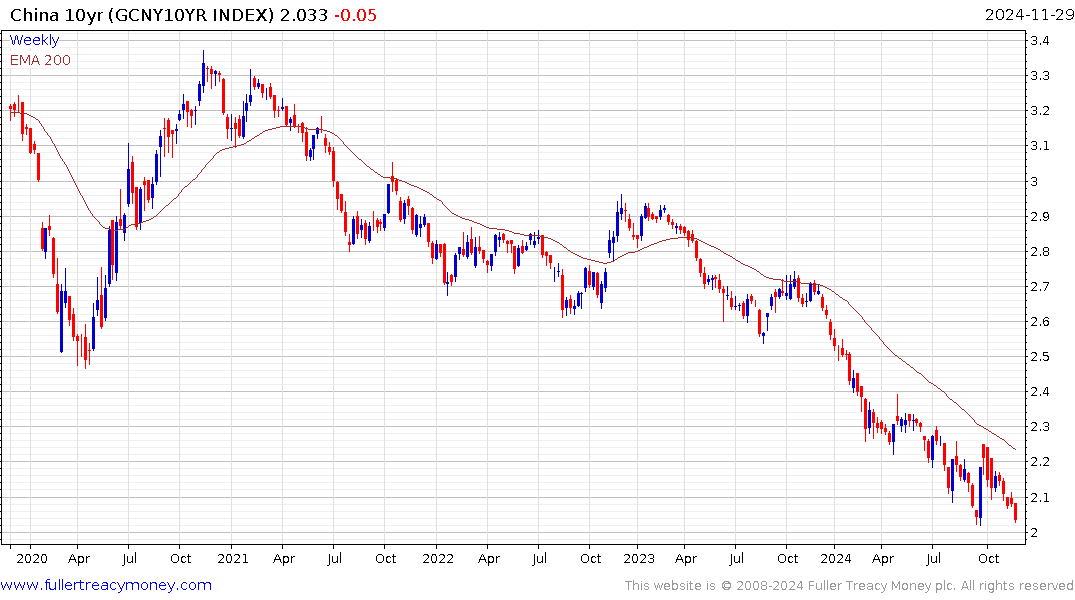China’s Bond Yields Are Now Below Japan’s
Japan’s property and housing bubble peaked in the late 1980s. That led to decades of deflation where the stock and property markets trended inexorably lower. The big question for investors today is whether that same fate is in store for China’s markets.
Between the peak in 1989 and the lows in 2009/11 the Japanese property market lost about half its value and the stock market dropped 73%.
China did not experience the same concurrent stock and property market booms that Japan’s did. The stock market is not expensive, but the property market is still close to its peak.
If China is going to experience the same kind of deflationary funk as Japan, that would imply property markets are going to contract significantly over the next couple of decades with a significant knock-on effect for consumer wealth and credit demand.
We might think about the factors that contributed to Japan’s deflationary issue. For example, not allowing the banks to write off bad loans or to foreclose large numbers of property was one issue. Demographics did not help either. The positive trade balance removed urgency from the reform agenda. Meanwhile, the 1990s and 2000s presented a powerful disinflationary environment for the global economy.
Of these the positive trade balance is the most significant for China. At present the Communist administration is betting manufacturing will compensate for the reduction in construction spending and investment. They are also betting that technological innovation will create a productivity buffer which will avoid the deflationary outcome.
The rest of the world is already responding with anti-dumping policies because China is eating into the competitiveness of their champion industries. That is particularly true for the USA and Europe.





